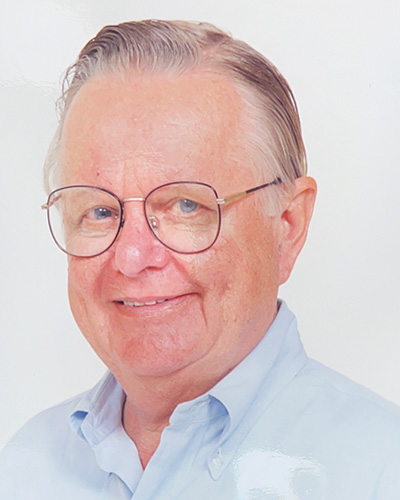In memoriam: Robert Warren Newburgh
Robert Warren Newburgh, a distinguished developmental and cell biologist and a beloved family man, died Aug. 4 in Tallahassee, Florida. He was 102 and had been a member of the American Society for Biochemistry and Molecular Biology since 1957.

Newburgh was born on March 22, 1922, to Oscar and Ida Selma Kreutz Newburgh in Sioux City, Iowa. After graduating from high school in Sioux City, he enlisted in the Army during World War II, where he served honorably as an officer in the Medical Service Corps, honorably discharged with the rank of captain.
Following his military service, Newburgh earned a B.S. in chemistry from the University of Iowa, followed by a Ph.D. in biochemistry from the University of Wisconsin–Madison. His academic journey led him to Oregon State University, where he rose through the ranks from assistant professor to professor in just six years. He held several administrative positions at the university, including assistant director of the Science Research Institute, chair of the Department of Biochemistry and Biophysics, dean of the graduate school and concurrently, for one year, acting dean of undergraduate studies. He helped establish the Department of Biochemistry and Biophysics at Oregon State was given the title of professor emeritus upon leaving the university.
Newburgh's research focused on developmental and cell biology, using primarily insects and cell cultures as models. He investigated the neural development of a variety of organisms, such as chickens and wax moths. In 1972, he showed that 28S ribosomal RNA can be converted to an 18S component via breaks in the RNA's primary structure, rather than a conformational change. These findings contributed to the broader knowledge of RNA structure, stability, and function, which is crucial for advances in molecular biology, genetics, medicine and biotechnology. Newburgh's work was supported by grants from the National Institutes of Health, the National Science Foundation, the American Cancer Society, the American Heart Association, the Dreyfus Foundation and the Life Insurance Foundation.
In 1980, Newburgh moved to Washington, D.C., to work as head of the Section on Molecular and Genetic Biosciences at NSF. His leadership extended to the Office of Naval Research, where he served as the director of the Biological Sciences Division and later as director of Biological and Biomedical Science and Technology. He then took on the role of executive director of the Protein Society, which he held until his final retirement in 2004.
After relocating to Tallahassee in 2008, Newburgh contributed his expertise and time to a number of volunteer positions. He was a patron of the Tallahassee Symphony Orchestra, and attending their concerts brought him immense joy and fulfillment. He spent his final years at St. Augustine Plantation in Tallahassee. His warmth, wisdom and generosity touched the lives of many, leaving a legacy of kindness and integrity.
Newburgh is survived by his wife, Janet; his children, son Kirk (wife Gene), daughters Christina Freeman (husband Benjamin) and Collette; stepchildren, Juan Miguel Cardenas, Linda Marie Cardenas, Joseph Edward Cardenas (wife Veronica) and Victoria Cardenas. His daughter Elizabeth Downer predeceased him. He is also survived by a number of grandchildren and great-grandchildren.
With thanks to Christina Freeman for her assistance.
Enjoy reading ASBMB Today?
Become a member to receive the print edition four times a year and the digital edition monthly.
Learn moreGet the latest from ASBMB Today
Enter your email address, and we’ll send you a weekly email with recent articles, interviews and more.
Latest in People
People highlights or most popular articles

From humble beginnings to unlocking lysosomal secrets
Monther Abu–Remaileh will receive the ASBMB’s 2026 Walter A. Shaw Young Investigator Award in Lipid Research at the ASBMB Annual Meeting, March 7-10 in Washington, D.C.

Chemistry meets biology to thwart parasites
Margaret Phillips will receive the Alice and C. C. Wang Award in Molecular Parasitology at the ASBMB Annual Meeting, March 7-10 in Washington, D.C.

ASBMB announces 2026 JBC/Tabor awardees
The seven awardees are first authors of outstanding papers published in 2025 in the Journal of Biological Chemistry.

Decoding how bacteria flip host’s molecular switches
Kim Orth will receive the Earl and Thressa Stadtman Distinguished Scientists Award at the ASBMB Annual Meeting, March 7–10, just outside of Washington, D.C.

Thiam elected to EMBO
He was recognized during the EMBO Members’ Meeting in Heidelberg, Germany, in October.

The timekeepers of proteostasis
Learn about the cover of the winter 2026 ASBMB Today issue, illustrated by ASBMB member Megan Mitchem.
